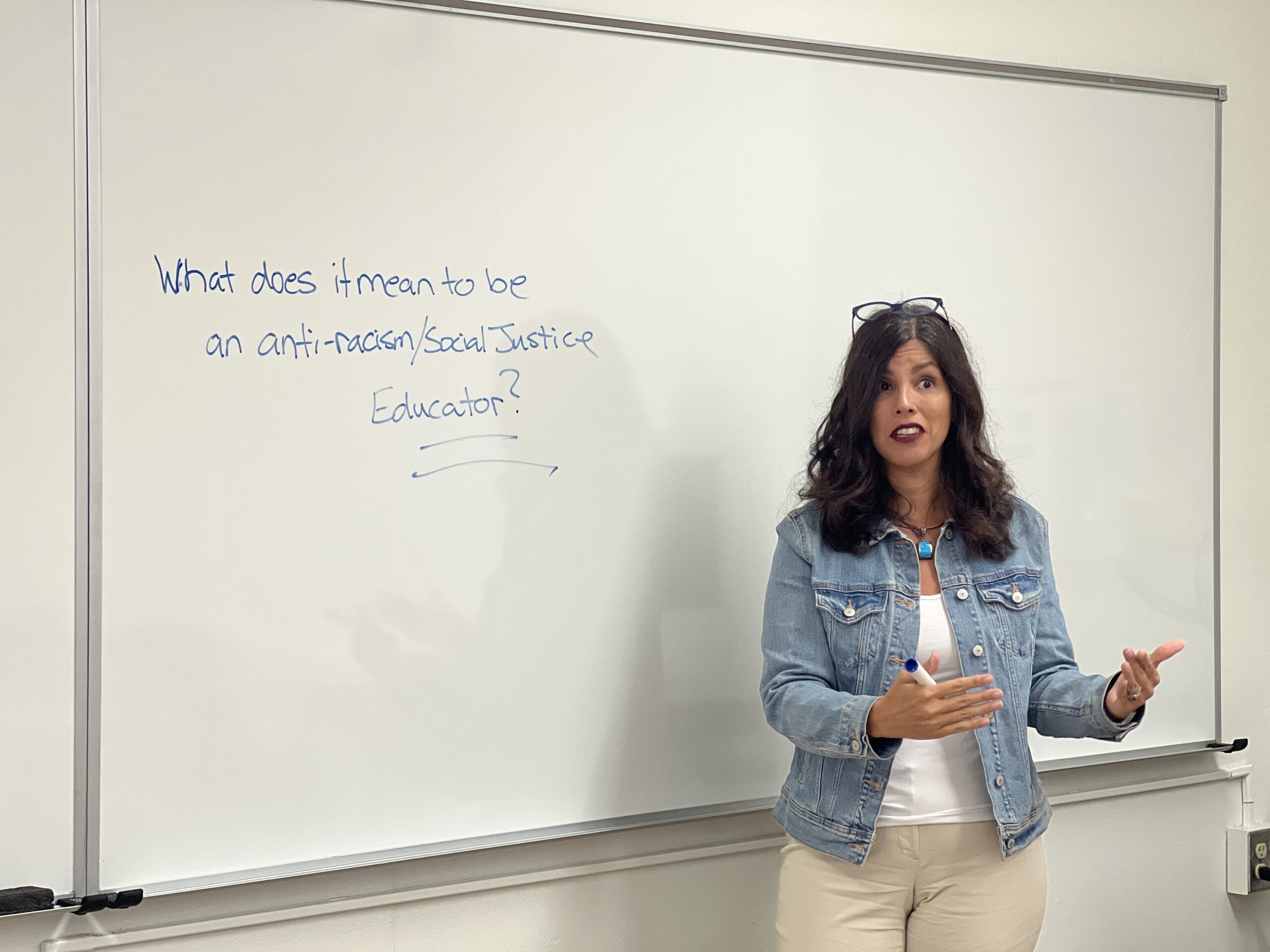Faculty, Students Join in Opposition to Cal-GETC for Non-Transfer Students
Faculty and students oppose proposed changes to the General Education (GE) requirements for CSU students.
CSU management and trustees are considering applying changes aimed at transfer students to all students, removing one Arts and Humanities class and the Lifelong Learning and Self-Development course requirements. The move would discourage students from enrolling in important classes that help them succeed. For example, Lifelong Learning courses can play a major role in supporting students from historically marginalized communities.
The Student Transfer Achievement Reform Act (Assembly Bill 928) created a single set of classes that act as a pathway to increase transfers from California Community Colleges, for both CSU and the University of California. The California General Education Transfer Curriculum (Cal-GETC) was approved by all three higher education systems and is scheduled to go into effect for fall 2025 for students transferring into the CSU. More than 40% of CSU students transfer from community colleges.
CSU management wants Cal-GETC to apply to all incoming students as well.

The Academic Senate of the CSU opposes the application of Cal-GETC to all students, noting the harmful impact on educational quality and students of color.
“The CSU Faculty are categorically opposed to changing the curriculum without evidence that the changes meet our students’ educational needs. At no point in the development of Cal-GETC were the needs of CSU students at the forefront. At no point has there been evidence that our students do not need the abilities to think critically, appreciate differing perspectives, and act with tolerance that they learn in humanities courses. At no point has there been evidence that our students do not need the cultural capital that comes from exposure to the arts. At no point has there been evidence that our students do not need the skills they learn from courses in lifelong learning, especially those courses designed and proven to prepare students for success in college,” states a resolution passed by the Academic Senate of the CSU.
According to the resolution, “In Fall 2022 at CSU Northridge, first time Black students who did not take the college skills course as part of GE Lifelong Learning had an average GPA of 1.92. Their peers who took either the college skills course or the variant specifically for Black students had average GPAs of 2.39 and 2.67, respectively.”
Cal-GETC removes two classes from the GE requirements for CSU students. It removes one Arts and Humanities class and the Lifelong Learning and Self-Development course.
Faculty and students fear that CSU management is missing the point of the People’s University — quality education for whomever wants it is the actual goal of public higher education and attempts to increase graduation rates at the expense of that quality education are misguided at best.
Skills courses help recruit and retain students from diverse and rural communities, where many K-12 schools have experienced decades of disinvestment and under-resourcing due to systems of racism, colonialism, racial capitalism, and environmental injustice. It’s why many who identify as Native and Indigenous students or Black students struggle at CSU campuses without the support provided by skills courses, mentoring, tutoring, resource centers, and mental health counseling.
San Francisco State first-year student Elsy Hernandez-Monroy took her Lifelong Learning class this academic year. The King City native said the class taught her about the university and helped her feel more a part of the Bay Area culture – that sense of belonging is a key indicator of student success.
“As a first-year student, I saw the tuition increase pass and knowing that I barely got here, I know it’ll be difficult for others,” Hernandez-Monroy said. “For students having a larger transition like first-generation, transfer, and international students, to not have those course requirements, they’ll have a tougher time adjusting to the changes and challenges.
“Administration is continually watering down our education and making us pay more. The Cal-GETC change is a profit-driven decision that further severs us from our campus community,” she added.
Though some think the Cal-GETC changes with five fewer credits make for a speedier path to graduation, many departments are planning to increase their requirements by five units.
Making the Cal-GETC switch for all students means larger class sizes for upper division courses, which will result in increased workload for many faculty while other faculty will lose work, primarily our lowest-paid lecturer faculty.
Changes to curriculum and courses come months after CSU trustees passed a 34-percent tuition increase by the 2028-29 school year. Unconscionably, CSU students will be paying more for less.
Extending Cal-GETC to all incoming students is a misguided and cynical attempt by CSU management to increase graduation rates. Such a move ultimately results in the exploitation of students and faculty and compromises the CSU’s education mission.
Join California Faculty Association
Join thousands of instructional faculty, librarians, counselors, and coaches to protect academic freedom, faculty rights, safe workplaces, higher education, student learning, and fight for racial and social justice.